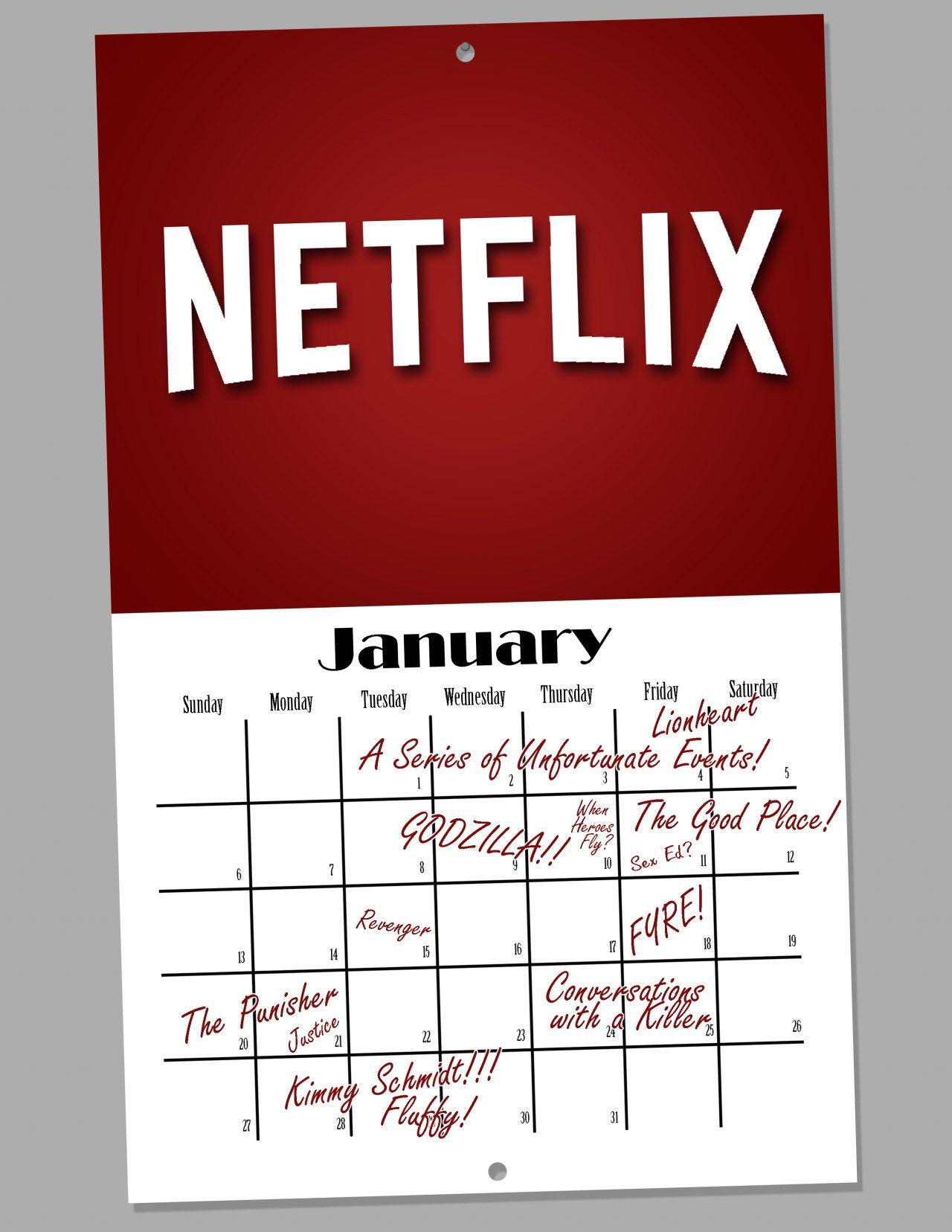Illustration by Andrea Nebhut
If you know, you know, you know? This seems to be the constant energy logging into Twitter after a Netflix new release. In the past few months, if you haven’t been up to date on “Bird Box,” “Black Mirror: Bandersnatch” or the assortment of teen-targeted but widely-watched content like “Dumplin’,” “The Kissing Booth” and “You,” you may not have a clue about what’s going on.
This month’s release of two competing documentaries on the infamous Fyre Festival only increased this feeling of blink-and-you-missed-it content, adding Hulu into the mix of streaming platforms vying for our immediate attention each weekend. Fyre Festival was advertised widely by various prominent Instagram influencers as a luxury musical festival taking place on a private island in the Bahamas but was in fact an elaborate scam. “Fyre Fraud” dropped on Hulu on Jan. 14, preempting the expected Jan. 18 release of Netflix’s “Fyre: The Greatest Party That Never Happened.”
Netflix’s fairly straightforward film focuses the narrative in the present tense, with its only relationship to the future being the constant sense of foreshadowing. “Fyre” intersperses footage of the Fyre Festival mastermind Billy McFarland and so-called partner Ja Rule as they loosely plan the event with talking heads from the people that worked for Billy talking about what an utter shitshow the planning was. Andy, an industry veteran who was asked by McFarland to offer sexual favors to a Bahamas customs agent in exchange for Evian water, alone makes this more than a must-watch.
There’s a fair share of interesting white men with beards who work in event planning in New York in this documentary, but there’s also a very important focus on the effects of the festival’s chaotic planning on the local community. McFarland left the island of Great Exuma in the Bahamas with thousands owed to the workers, which was left out of the social media storm immediately following Fyre in 2017.
Hulu’s “Fyre Fraud” replaces the footage from McFarland’s cameramen with cultural commentators, including The New Yorker’s Jia Tolentino, framing the festival within the millennial digital landscape. “Fyre Fraud” attempts to make a much more sweeping statement with its documentary. Most notably, the film features an interview with McFarland, seemingly a play for sympathy by him but only adding more fuel to the cultural fyrestorm.
“Fyre Fraud” builds a much broader critique around the nature of the festival, with a lot more financial and personal insight into McFarland’s history of scammery. With this cultural context comes the inevitable drawbacks of commentary that often feels like it’s overstepping the boundaries. Afterall, this is but one fraudulent music festival for rich millennials in a sea of other social media scams targeted at the young.
Netflix’s documentary definitely features more original footage than Hulu’s, with incredibly tense narrative and slick production, but it owes much of this to its production company Jerry Media, the same media group that was in charge of Fyre Festival’s marketing. The most obvious takeaway from these documentaries is the dangerous power of online viral marketing, but this is complicated when those controlling the narrative arguably shares some of the responsibility for the festival’s fraudulent failure.
The Fyre Festival clearly succeeded in part due to the force of FOMO, or fear of missing out, as Hulu’s “Fyre Fraud” so frustratingly defines in one of its many calls to broad millennial cultural trends. I watched the documentaries out of order and fairly late in the game, catching the Netflix documentary on Jan. 22 and the Hulu one later in the week on Jan. 25. By that time, I’d had already seen the face of the aforementioned Evian Andy a few dozen times. The swell of mentions of Fyre had already reached their peak and had quickly become referential, with memes that were only comprehensible after finishing the films.
While I was entertained, enthralled and enraged by the dueling Fyre documentaries, they also serve to reinforce a sort of digital streaming FOMO, one that has become increasingly omnipresent in our lives. I still have no clue how so many of you finished that whole, incredibly spooky season of “Chilling Adventures of Sabrina” in one weekend. Can we all just agree to keep our media consumption to one Fyre Festival documentary per weekend? I’m looking at you, Netflix and Hulu.







